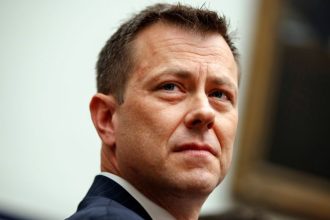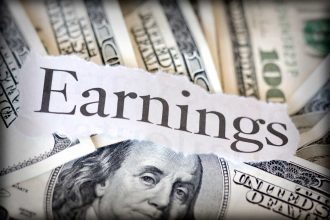As Bud Light continues to face fallout from its partnership with a transgender influencer, its parent company is rolling out commercials centered on some of its 65,000 workers and partners.
Anheuser-Busch’s new ad campaign, launching Wednesday, “celebrates the people that bring our beer to life,” including farmers, delivery drivers and servers — some of whom have been the targets of threats after Bud Light sent a customized can to transgender influencer Dylan Mulvaney in March.
Mulvaney posted a video on Instagram showing off the can, and it sparked anti-trans backlash and calls for a boycott. Shortly after, A-B CEO Brendan Whitworth released an anodyne statement that angered LGBTQ+ advocates.
The episode became ground zero in America’s culture wars. A-B breweries have faced bomb threats and some employees were reportedly harassed. Distributors are also facing financial difficulty because of a sharp decrease in Bud Light sales. Two marketing executives, Alissa Heinerscheid of Bud Light and Daniel Blake of A-B, have taken leaves of absences.
The company has had to provide financial support to distributors based on the extent to which sales have fallen: Some distributors will get between 20 cents to 50 cents back per case, depending on how severely their sales slipped, according to Beer Business Daily. The negative publicity has also hurt A-B’s other brands, including Michelob Ultra.
Titled “That’s Who We Are,” the new TV ad campaign “recognizes the passionate people behind America’s most loved beers,” A-B said in a release Wednesday. The ads feature footage from various American cities, including Houston and Jonesboro, Arkansas.
“Our commitment to our amazing network has never wavered — it has only grown stronger. We are looking forward, and it’s time to recognize and salute the people behind the scenes that drive our industry forward,” said Whitworth.
The ads are part of A-B’s overall make-good campaign with distributors. In addition to providing financial assistance to its wholesalers, A-B is also reimbursing fuel for distributors’ trucks and also debuted a new Bud Light ad campaign last week that focuses on country music and NFL players.
After the March boycotts, Whitworth did not mention specifics of the issue in his first public statement in April. He said the company was “in the business of bringing people together over a beer.” That led the Human Rights Campaign to say it was “disturbed” by the company’s response, and A-B subsequently had its top LGBTQ+ rating revoked.
Last week, A-B InBev’s top marketing executive also spoke out about the campaign.
“When things get divisive and controversial so easily, I think it’s an important wake-up call to all of us marketers to be very humble,” said Marcel Marcondes, A-B’s global chief marketing officer, at Cannes Lions International Festival of Creativity.
“It’s tough to see all the controversial and divisive debates happening in the US the last couple of weeks involving lots of brands and companies, including, especially, Bud Light,” Marcondes told the audience. He said brands in this situation should remain open to learning and understanding their customers.
In May, Mexican lager Modelo Especial dethroned Bud Light as America’s top-selling beer, a title that Bud had largely held for more than two decades. Bud Light sales plunged 24% during the four weeks ending June 3, according to NIQ data provided to consulting firm Bump Williams. Bud Light, however, remains the country’s top-selling beer so far this year.
Read the full article here




